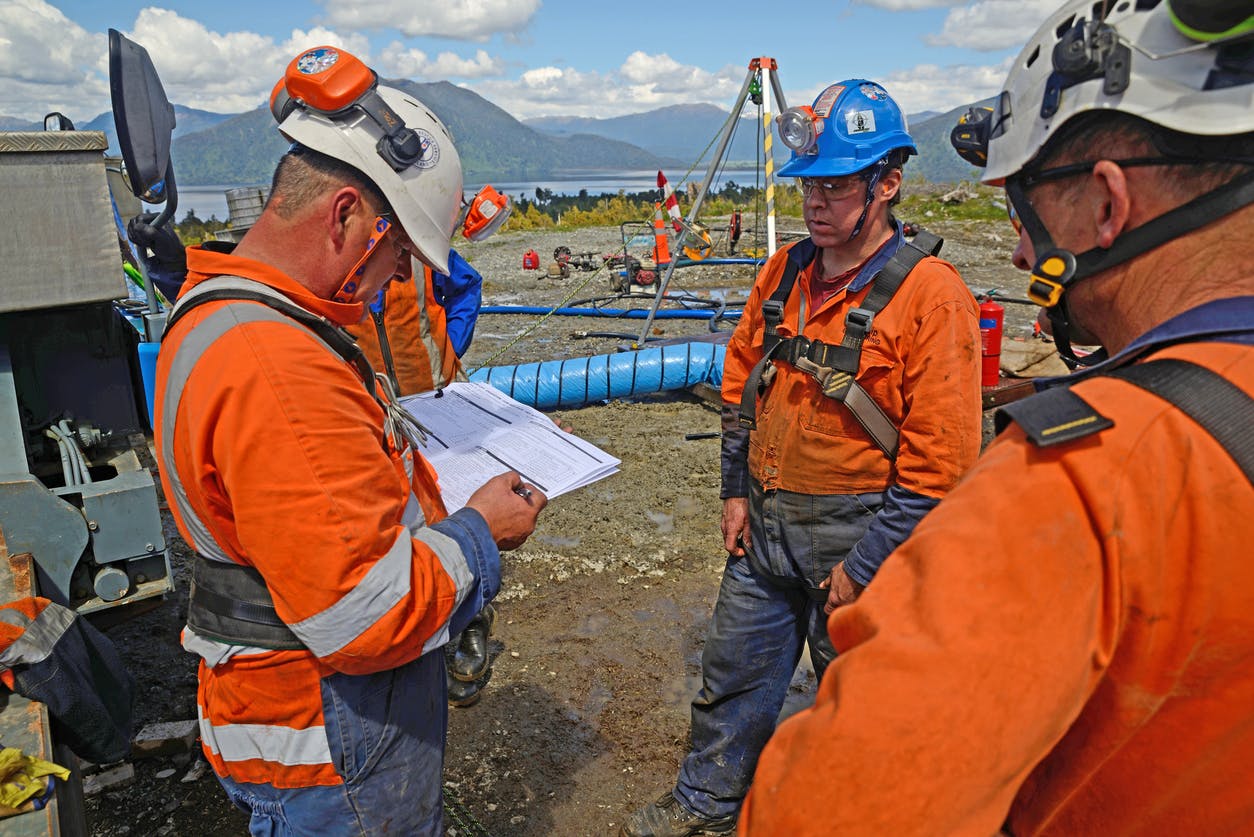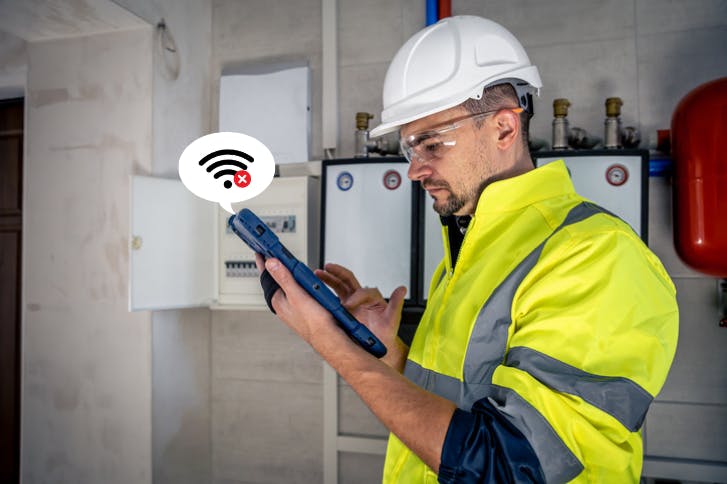Essential telecom & energy infrastructures are in high demand as the shift towards a greener society accelerates. Despite this rapid progression, businesses realize that quality cannot be sacrificed for speed. As a consequence, the overarching objective is to ensure rapid deployment while meeting quality requirements and maintaining efficiency.
Businesses want both because this is the holy grail of scaling effectively. Achieving this requires two crucial components: Quality Control (QC) and Quality Assurance (QA). These two concepts are often conflated and are even pitted against each other as if they were in a duel. This is a misconception that hinders progress.
In this blog, we’re going to explore the differences between quality control and quality assurance by looking at how they materialize in field operations. We’ll also delve into the crucial role that AI plays in revolutionizing these practices, highlighting how field operations organizations can gain a competitive advantage through enhanced quality management.

Quality Control: a Process to Detect Anomalies
Quality Control in Field Operations
Quality control is defined as a series of verification procedures designed to ensure that the results of a produced good or service meet expectations. It involves rigorous inspection, measurement, and testing to detect and correct deviations from desired quality standards, fostering continuous quality improvement.
In field operations, the quality control process involves checking that the technician's work on a given intervention meets established standards, thereby preventing defects from escalating. Traditionally, QC has relied heavily on manual verification methods where back-office personnel review photos or conduct on-site audits, impacting customer satisfaction.
This reliance on human judgment is costly, as manual inspections are time-consuming compared to automated quality assurance tools. Incorporating advanced quality assurance tools can significantly improve this process.
Additionally, quality control is often carried out on a sample of operations. AI makes it possible to perform comprehensive checks on all operations at speed. Its manual composition prevents it from being scalable, leaving many operations unchecked and anomalies undetected.
Example
Before implementing an AI-powered QC solution for fiber optic service activation, French service providers experienced failure rates of up to 30% according to the French telecom regulator, called ARCEP. This was heavily hampering operators’ profits, as they had to plan costly revisits to fix the errors.
Digitizing Quality Control in Field Operations with AI
AI has been a remarkable quality control management amplifier in field operations through its ability to enable a more systematic approach. This is because the AI automates the data analysis of each photo captured on-site, detects defects with high accuracy, and provides immediate feedback to field workers.
The technology behind this transformation is called computer vision, one of the quality control AI tools that allows field operation companies to automate quality control when workers are on-site, and have them correct potentia errors before leaving the site.
The advantages of quality control with AI include:
- Reduced errors and oversight: On-the-spot anomaly detection, leading to higher accuracy and reliability in quality assessments.
- Cost savings and efficiency improvements: Automating these processes minimizes the need for manual inspections and reduces the occurrence of defects, allowing organizations to save on labor costs and avoid expensive rework.
- Accelerated project timelines: The ability to correct issues immediately with real-time feedback and on-the-spot corrections means projects can proceed without the delays typically associated with post-completion inspections and corrections.
At Deepomatic we reject the outdated ‘Post-Work Quality Control’ – a reactive approach to identifying defects or issues only once the work is done. Instead, we support the concept of Real-time and Automated Quality Control. This enables our customers to achieve First-Time-Right operations, ensuring that field operations succeed on the engineer's first visit. Our computer vision platform was developed to meet this objective and therefore allows our clients to achieve all the benefits listed above.

Quality Assurance: a Framework Preventing Anomalies From Occurring
Quality Assurance in Field Operations
Quality Assurance (QA) aims to prevent defects, errors, and deviations, ensuring quality standards are maintained throughout each phase of the field operation. In other words, what levers can we pull to prevent these issues from occurring in the first place?
It’s a proactive approach that strives to build quality into the workflow, rather than relying solely on post-event inspections. Under this approach, businesses create robust frameworks to maintain high standards throughout the production lifecycle.
In fiber optic roll-out operations, QA involves the establishment of quality standards by Infrastructure, Operations, and Quality managers. These rules guide how field workers and subcontractors should execute tasks to assure quality in the network, such as proper cable layout and equipment labeling.
Enhancing Quality Assurance in Field Operations with AI
AI has now become the linchpin of a fully optimized Quality Assurance Framework. With computer vision, companies can analyze infrastructure asset photos in real time during field operations, ensuring consistent product quality.
The quality feedback provided in real time allows field workers to understand what work actions they must be careful about in their future interventions, reinforcing a proactive process in quality assurance. This is called On-The-Job learning. At Deepomatic we have designed a field interface that clearly communicates the results of the AI analysis to field workers, through text and visuals, to facilitate continuous skill improvement and therefore enhance future performance.
We also generate and display data about the conformity of the work done by field teams so Operations Managers can identify areas for improvement and take proactive actions, such as training. What’s more, organizations can use the job compliance data gathered from the field to decide which contractors they should maintain business contracts with to ensure that their quality standards are enforced correctly.
Finally, our platform generates insights that also contribute to deploying quality infrastructures as operations go, through our Asset Management feature. The analysis of each photo captured in the field within quality control systems allows tracking the physical state of network assets. (street cabinets or distribution points in the case of a fiber network). A health score is automatically calculated and provides key insights to companies as to when and where to trigger predictive maintenance operations.

AI Propels Quality Management Standards to New Heights
As we put QA and QC under the microscope and analyze them from all angles, it’s clear that quality control vs quality assurance is the wrong discussion. While they differ in approach—QA being proactive and process-focused, and QC being reactive and product-focused—both are indispensable for maintaining high standards and achieving operational excellence.
They are actually complementary components of a comprehensive, process-oriented quality management system, demonstrating the importance of both QA and QC.
As we look to the future, the role of AI in quality management will only grow. Quality assurance with AI has already set the new benchmark, offering powerful tools and insights that drive excellence.
Using quality assurance AI tools like Deepomatic will empower field workers with instant analysis and corrective actions, fostering a proactive approach to quality management.
This not only improves efficiency and accuracy but also contributes to a culture of continuous improvement and learning within quality systems, while helping organizations speed up their infrastructure deployment.

Want More Information About Quality Assurance With AI?





